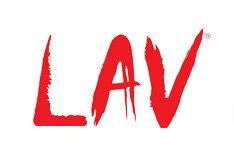Music and Academic Performance
Music education is shown to dramatically stimulate students’ academic performance, suggesting a strong correlation between music and general cognitive performance.
Students who study music and participate in musical instruction integrated in school curricula outperform their non-music peers in assessments of mathematics and reading, regardless of socio-economic status or ethnicity.
(1,2, 5-7, 9-11)
According to data from the NELS:88 database of the U.S. Department of Education - which tracked 25,000 students over a ten-year period - and the U.S. College Board, students involved in musical instruction score higher on standardized and reading tests than those not taking music courses. (3,4,8)
Duration of musical training seems to be directly related to student achievement: the longer students are involved in music education programs, the greater the impact on their academic performance. (6)
References
- Martin Gardiner, Alan Fox, Faith Knowles, and Donna Jeffrey, “Learning Improved by Arts Training”, Nature, May 23, 1996
- B. Friedman, “An Evaluation of the Achievement in Reading and Arithmetic of Pupils in Elementary School Instrumental Classes”, Dissertation Abstracts International
- Dr. James Catterall, UCLA, 1997
- College Board Survey of SAT Test Takers 2000
- “Involvement in the Arts and Human Development: General Involvement and Intensive Involvement in Music and Theater Arts.” By James S. Catterall, Richard Chapleau, and John Iwanga, from the UCLA Graduate School of Education and Information Studies, 1999.
- Wetter, O., Koerner, F. & Schwaninger, A. (2009). Does musical training improve school performance? Instructional Science: An International Journal of the Learning Sciences, 37(4), 365-374.
- Helmrich, B.H., (2010). Window of opportunity? Adolescence, Music and Algebra. Journal of Adolescent Research, 25(4), 557-577.
- Vaugh K., & Winner, E. (2000). SAT Scores of Students Who Study the Arts: What We Can and Cannot Conclude about the Association. Journal of Aesthetic Education, 34(3/4), 77-98.
- Butzlaff, Ron. (2000). Can Music Be Used to Teach Reading?, The Journal of Aesthetic Education, 34(3): 167-178
- Baker, R. A. (2011). The Relationship between Music and Visual Arts. Formal Study and Academic Achievement on the Eight-Grade Louisiana Educational Assessment Program (LEAP) Test. (Doctoral dissertation, Louisiana State University, 2011)
- Catterall, J. S., et al. (1998). Involvement in the Arts and Human Development: General Involvement and Intensive Involvement in Music and Theater Arts. In E.B. Fiske’s (Ed.), Champions of Change (pp. 1-18). Washington, DC: the Arts Education Partnership & the President’s Committee in the Arts and the Humanities.
 Donate
Donate